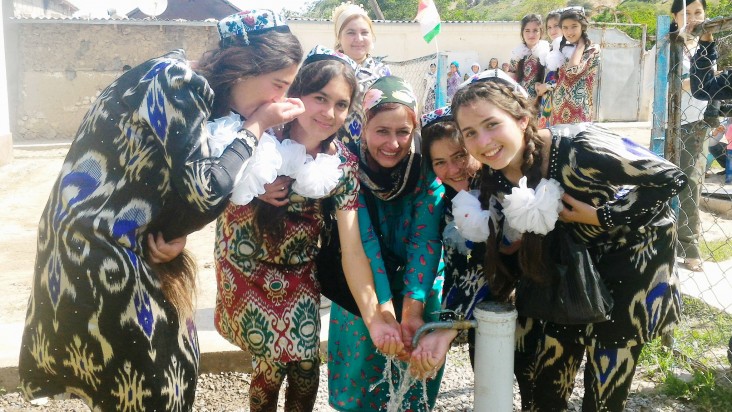Speeches Shim

School children celebrate access to clean drinking water.
USAID
Despite considerable effort and investment, lack of access to clean drinking water continues to be a major issue, particularly for people in rural Tajikistan. Many residents rely on rivers and open ditches for drinking water. Through USAID technical assistance, the parliament of Tajikistan passed an amendment in May 2017 to a law on local government that increased the authority of local municipalities in managing local revenue to address citizens’ needs, such as increasing access to safe drinking water.
USAID helps local governments deliver water services to their constituents, works with farmers to better manage irrigation water through water user associations, and teaches families how to improve sanitation and hygiene behavior to keep themselves healthy.
Results:
- Since 2009, USAID has built or rehabilitated 76 water systems, giving more than 242,000 people access to safe drinking water.
- USAID trained 140 local government officials in 10 districts and 20 target municipalities in budget management and service delivery. To ensure sustainability, USAID installed software and e-manuals for on-the-job training for local government employees.
- USAID established 56 community-level water user associations, to improve community control, management, and investment in farm irrigation. Improved water availability has enabled farmers to double their income and has benefited over 200,000 people.
- USAID provided support to the Tajik weather and water forecasting agency to better predict the amount of water available for irrigation each year, enabling operators to release the right amount of water and reserve the rest for generating electricity.
- Forty five potential community masons and entrepreneurs were trained to construct ventilated improved pit (VIP) latrines, bookkeeping, tax regulations and marketing. Over the course of a year, 152 latrines were sold by masons trained by USAID.
- Through peer-to-peer training, USAID reached 2,575 adolescent girls with educational sessions on health topics, including water, hygiene and sanitation.


Comment
Make a general inquiry or suggest an improvement.